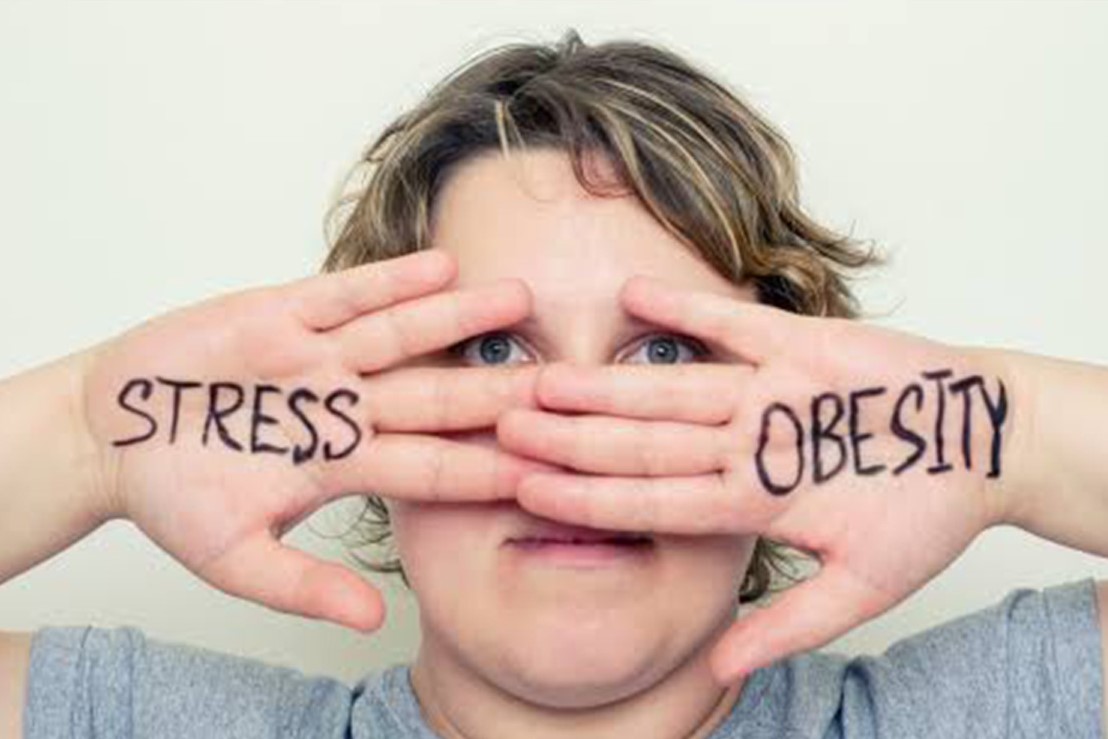
Eating disorders: the correlation between stress and obesity
The deleterious effects of stress: obesity may be caused or maintained by increased neurobehavioural reactivity to food-related environmental cues
Obesity and stress, the study
Consistent with this hypothesis, a number of neuroimaging studies with overweight subjects have demonstrated increased activation in response to food images within regions subordinate to reward, emotion, memory and sensorimotor functioning, and decreased activation in regions subject to attention and self-regulation.
A more established literature, predominantly in animals, has indicated that psychosocial stress may be associated with increased food intake, particularly of energy-dense foods, and increased body weight and adiposity.
In a series of experiments involving the use of functional magnetic resonance imaging (fMRI) to measure brain activity across neural networks, researchers at Johns Hopkins Medicine (Carnell et al.,2022) examined how stress could increase appetite in obese or normal-weight adults.
Carnell and colleagues found that stress impacts the brain’s responses to food stimuli, and that normal-weight and obese adults react to food cues in areas of the brain associated with reward and cognitive control.
The results of the study on stress and obesity were published in the journal PLOS ONE in September 2022
For the study, the researchers examined a sample of 29 adults (16 women and 13 men), 17 of whom had a BMI in the obesity range and 12 of whom were normal weight.
The participants completed two fMRI scans, one after a combined social and physiological stress test.
Participants were administered a test of responsiveness to words describing food during both scans.
This test consisted of observing how people’s brains reacted to food-related words, such as menu items on a blackboard; to maximise the appetitive response in the brain, the researchers asked participants to imagine how each food might look, smell and taste, and how they would feel eating it at that moment.
They were also asked how much they wanted each food, and whether they felt they should reject it, to see how they approached the decision-making process for each food.
The results showed that obese adults show less activation in brain regions responsible for cognitive control especially in response to high-calorie foods, such as cheese.
The study also showed that stress affects brain responses to food
For example, obese individuals showed increased activation of the orbitofrontal cortex, a region deputed to reward, following the stress test.
Similarly, normal-weight individuals who were more ‘stressed’ by the administered test also showed less activation of the dorsolateral prefrontal cortex, a key brain area for cognitive control.
Understanding the neural basis of appetite in relation to stress could potentially aid the development of neurobehavioural interventions aimed at reducing overeating triggered by high stress levels.
References:
Carnell S, Benson L, Papantoni A, Chen L, Huo Y, Wang Z, et al. (2022) Obesity and acute stress modulate appetite and neural responses in food word reactivity task. PLoS ONE 17(9)
Ziauddeen H, Alonso-Alonso M, Hill JO, Kelley M, Khan NA. Obesity and the neurocognitive basis of food reward and the control of intake. Advances in nutrition. 2015;6(4)
Morys F, García-García I, Dagher A. Is obesity related to enhanced neural reactivity to visual food cues? A review and meta-analysis. Social Cognitive and Affective Neuroscience. 2020 Aug 12
Read Also:
Emergency Live Even More…Live: Download The New Free App Of Your Newspaper For IOS And Android
Obstructive Sleep Apnoea: What It Is And How To Treat It
Obesity In Middle Age May Influence Earlier Alzheimer’s Disease
Viral Infections In UK, Dangerous Viruses And Bacteria Prevalent In The UK
Clostridioides Infection: An Old Disease Which Became A Current Matter In Healthcare Sector
A Baby’s Gut Bacteria May Predict Future Obesity
Cot Death (SIDS): Prevention, Causes, Symptoms And Case Rates
Obesity And Bariatric Surgery: What You Need To Know
Can Stress Cause A Peptic Ulcer?
Wales’ Bowel Surgery Death Rate ‘Higher Than Expected’
Irritable Bowel Syndrome (IBS): A Benign Condition To Keep Under Control
Ulcerative Colitis: Is There A Cure?
Colitis And Irritable Bowel Syndrome: What Is The Difference And How To Distinguish Between Them?
Irritable Bowel Syndrome: The Symptoms It Can Manifest Itself With


